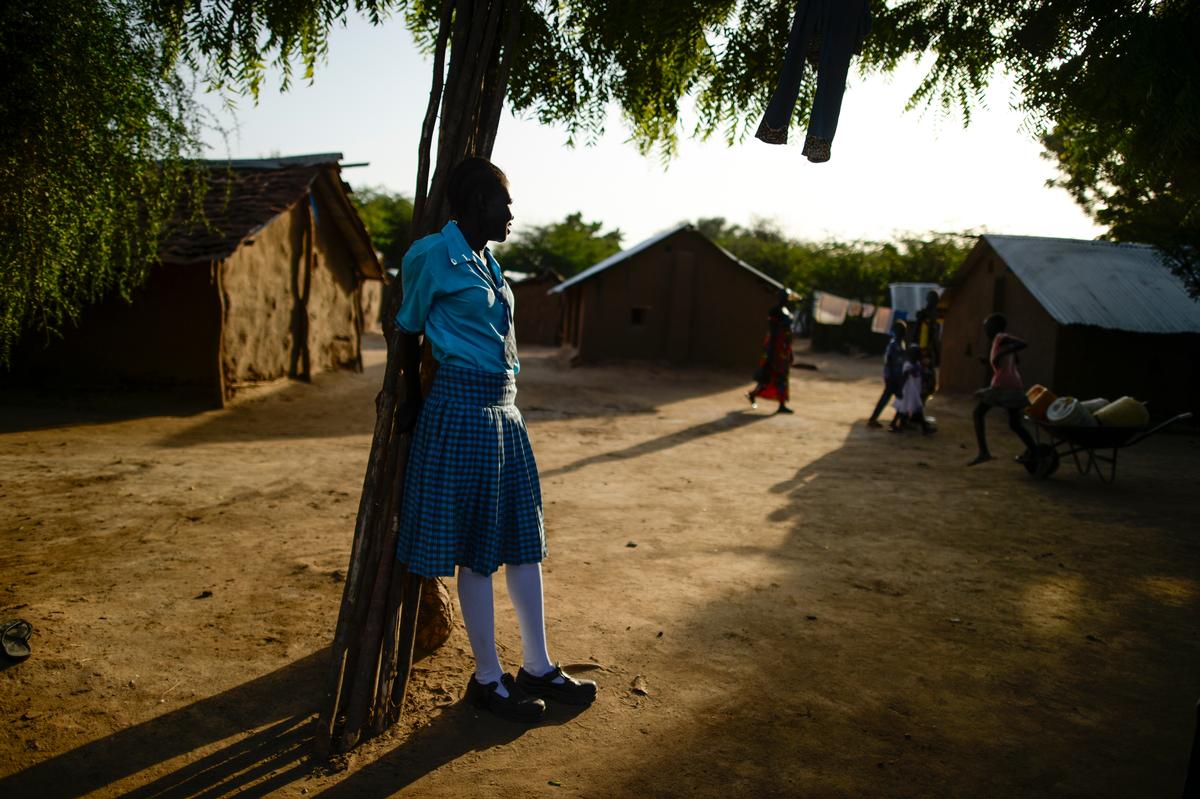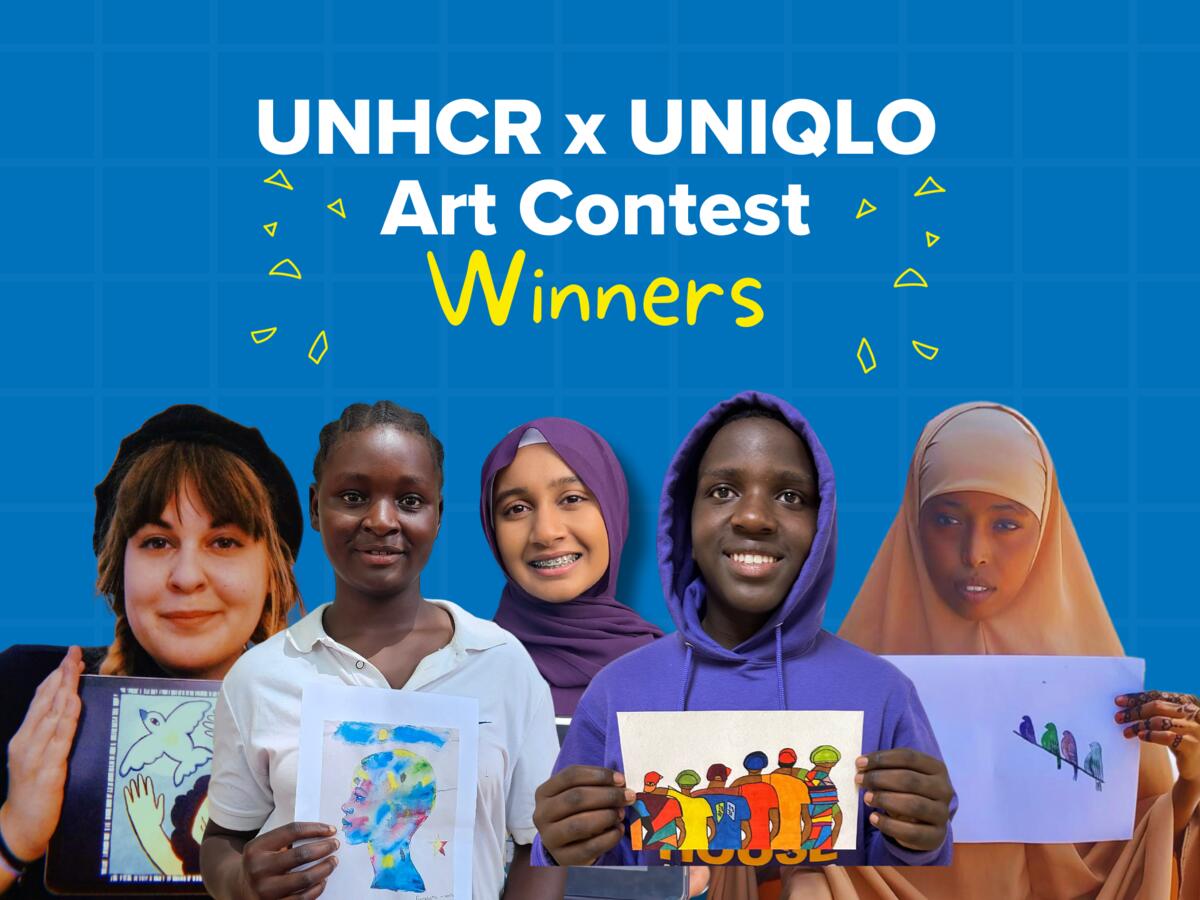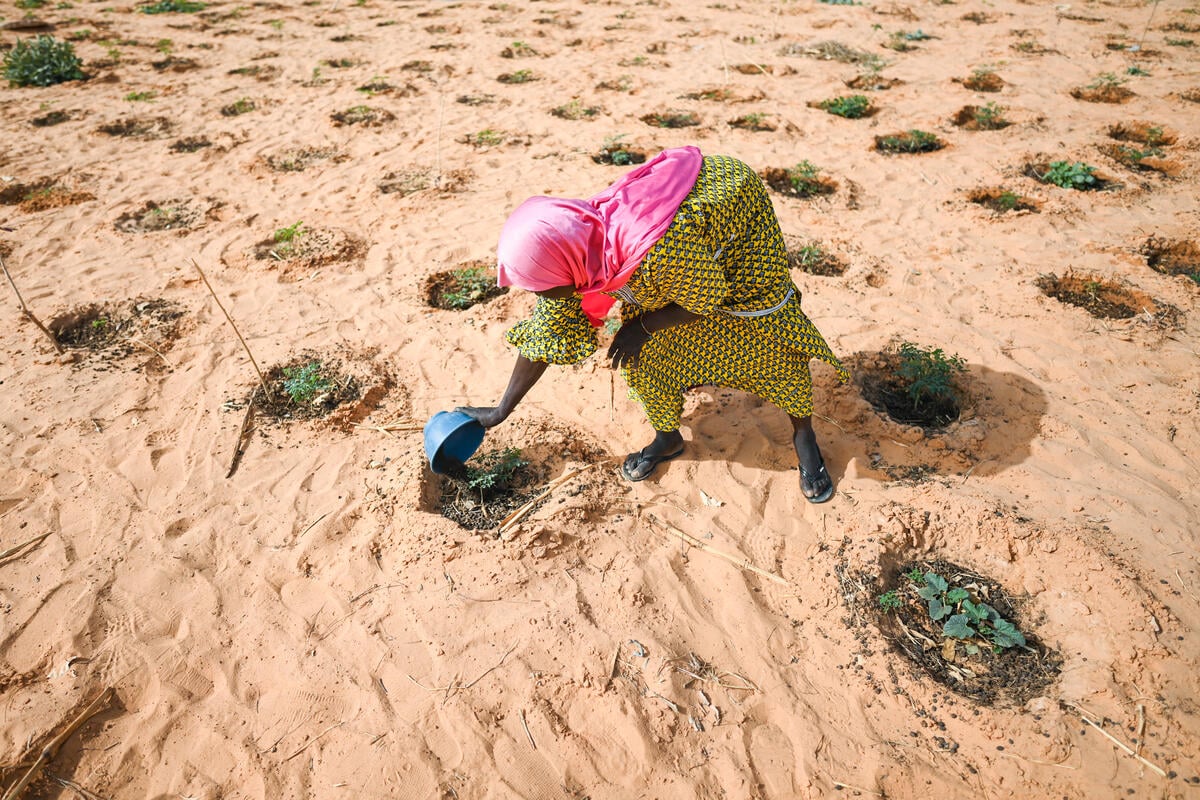From camp to campus

From camp to campus
Esther Nyakong, 17, laughs heartily as she sits among her classmates in Kakuma camp, in north-western Kenya. Her cheerful eyes sparkle every time she smiles. But behind the easy smile and smart responses to every question is a face that tells an emotional story.
"All I want is a better life. I do not want to be identified as a refugee for the rest of my life," she says as she stares away at the horizon. Her cheery mood changes as her face is shadowed by memories of South Sudan and a conflict that has forced hundreds of thousands of refugees to flee to neighbouring countries.
Esther is the last born in a family of three girls from Juba raised by a single mother. She has no recollection of her father, who died in the war before she was born. "I barely remember him. All I have is pictures and stories that people tell." She smiles wistfully as she recalls her days growing up in Juba. "I did not understand the war or why people were fighting. My mother shielded us from the reality, but as we grew older we started to see its effects."
Her mother brought the girls to Kakuma camp in 2009, when the tensions in Juba escalated and insecurity was rife. Although she was only 10, Esther vividly recalls the arduous journey to the camp. "It took us almost one week to travel. We left Juba at night with nothing but the clothes we were wearing." Their journey took them through Uganda first and then Kenya's capital before they eventually arrived in Kakuma. "At one point our bus broke down in the bush and we were almost attacked. We hid under the seats until help arrived and the attackers ran off."
Her uncle Chol welcomed them at the camp. He was among the first group of Lost Boys to arrive in Kakuma in the early nineties. He later returned to South Sudan during the repatriation in 2007, but renewed conflict in Duk, in Jonglei State, forced him to return to the camp in 2009. Esther's mother followed him soon after with her three daughters.
"I do not want to be identified as a refugee for the rest of my life."
Chol provided his sister and her family with shelter and helped them get ration cards from the UNHCR office. With these documents, each family member was able to collect 300g of maize, 85g of split peas, 60g of corn soya blend, 50g of oil and 7g of salt each month.
Esther and her sisters were enrolled in school immediately. "My mother values education and she believed a good education would help us have better lives." Esther admits that she was an average student in primary school. "I didn't take my studies seriously and I was not the best performer in school." However, this would soon change when her mother resorted to drinking cheap illicit liquor brewed in the camp to cope with the stress of life.
"My mother had given up and I was afraid that she did not have any hope left in life. Sometimes she would sit up all night and cry." Esther decided that she would focus on her studies to give her mother a reason to be proud of her. "People used to tell me I can't succeed in school because I have a mother who is illiterate. How can you succeed in school and your own mother cannot read?"
"I want to break the record and prove that girls have a future."
Through sheer determination, her grades improved, and she was accepted into Morneau Shepell, the only boarding school with modern facilities and solar lighting for girls in the camp. "Every girl wants to make it to this school, so I consider myself very lucky to have this opportunity."
She is also the library prefect and spends most of her time reading up on current affairs and finishing her assignments. She also plays football and is a striker in the school team. "I like football because it helps me to relax. It is a very popular sport in the camp," she says.
Her family is currently in South Sudan; she hasn't seen them in over two years. Her mother returned in 2013 to cultivate their farm and make some extra money to assist her family. But when conflict broke out in December of that year, the country plunged into more war and instability. Her sisters also returned after completing secondary school to help their mother. "I miss my family and friends and especially South Sudan," she says. Most of the people Esther knows in South Sudan are married with children. She imagines if she were still there she would not have had the chance to study.
"In my culture, people believe that girls should stay at home and raise children. Girls are considered a source of wealth to the family. I want to break the record and prove that girls have a future."
"I love science and math and I believe in myself."
Her role model is the accomplished American neurosurgeon Ben Carson. She identifies with his story and his struggles in his early education. "I admire him for his hard work and how he achieved his dreams despite everything." She wants to be the first female neurosurgeon in South Sudan. "I know it will be tough but I love science and math and I believe in myself."
Esther looks forward to the holiday breaks although she admits that she enjoys school life and the environment of books, friends, fun discussions and personal time. "School is fun as it's a diverse community where we get to share ideas and learn from each other."
During the holidays Esther loves to go for long evening walks with her cousin Rebecca or her uncle Chol along the lagas, the dry and dusty river beds that characterize Turkana County's landscape. "My uncle advises me a lot and encourages me to study hard," she says. "Every time I walk here I escape to a different world. I imagine I am living a different life and making a difference in people's lives."
Esther hopes to one day return to South Sudan, a country she left as a young girl full of fear. "I would love to return as a successful citizen, ready to make a change. I want to be the girl that made it from the camp to campus and from a refugee to a neurosurgeon."



















